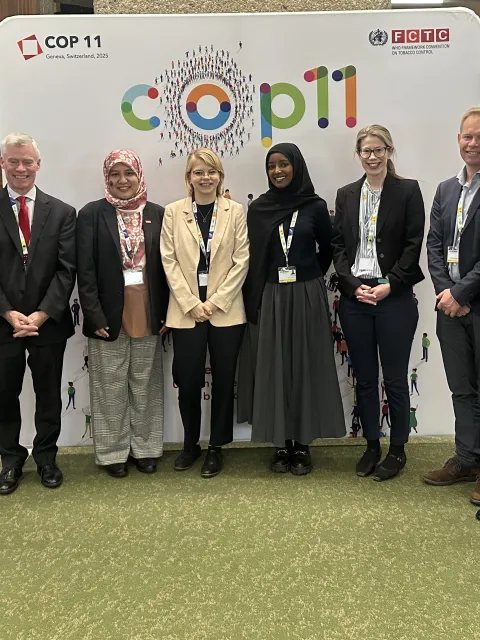UICC invites members for inputs on advocacy asks for robust commitments on cancer at the UN high-level meeting on NCDs
UICC is set to advocate for strong, evidence-based commitments to reduce the global burden of cancer at the upcoming United Nations high-level meeting on non-communicable diseases in September 2025, and is opening up to member organisations for a consultation on priority asks.
Cancer is the second leading cause of death globally, accounting for nearly a quarter of all deaths due to non-communicable diseases (NCDs).
The upcoming United Nations high-level meeting (HLM) on NCDs in September 2025 – the fourth after those in 2011, 2014, and 2018 – presents a critical opportunity for UICC and its members to secure commitments to invest significantly in addressing NCDs, and ensure that cancer service delivery is prioritised by governments within their broader NCD agenda.
A recent report by the UN Secretary General on the progress made in the prevention and control of non-communicable diseases (NCDs) and the promotion of mental health and well-being since 2018 paints a rather grim picture.
Despite some progress, the world is not on track to meet the Sustainable Development Goal target of reducing premature mortality from NCDs by one third by 2030. There are low levels of financing for NCDs in most countries, particularly for prevention, early detection and treatment, with inadequate infrastructure for effective NCD services. The high out of pocket costs for patients and their families have resulted in catastrophic health spending, the increased risk of poverty and greater inequities in countries.
“The report by the UN Secretary General underlines the urgency of action on NCDs and that addressing NCDs effectively is an investment in a country’s health and development with huge payoffs in both the short and long term. There are many actions that we can take now to prevent NCDs, detect them earlier and treat them with affordable interventions. UICC is looking forward to working closely with its members, partners and other stakeholders to ensure an UNHLM outcome document that contains concrete actions and targets.”
– Sonali Johnson, Head of Knowledge, Advocacy, and Policy, UICC
UICC’s key advocacy asks to countries
UICC is opening a consultation period for members to review its draft document for the HLM in September, which presents its advocacy asks outlined below, and provide their feedback.
This consultation document, available on UICC Connect in English, Spanish, and French, has been developed with a specific focus on pushing for the implementation of existing ambitious commitments to reduce the global cancer burden and improve survival and quality of life, as part of the coordinated global NCD response.
UICC aligns with the advocacy priorities developed by the NCD Alliance, placing special emphasis on those most critical to the cancer community. By working closely with the global NCD community, UICC aims to ensure that the commitments made at the UN HLM translate into tangible actions that improve cancer survival and quality of life for patients worldwide.
The following are actions UICC is suggesting governments to take:
-
Develop national cancer control plans: Commit to developing or updating a time-bound and costed national cancer control plan (NCCPs) by 2028. Plans should integrate evidence-based interventions and include a clear implementation strategy.
-
Scale up prevention measures: Scale up cancer and NCD prevention measures, focusing on interventions outlined in the WHO ‘Best Buys’ for NCDs. This includes robust policies on tobacco and alcohol control, promoting physical activity, and reducing exposure to harmful environmental factors, notably air pollution.
-
Improve access to essential medicines and technologies: Improve access to essential medicines, vaccines, and diagnostics for cancer and other NCDs. This includes addressing barriers related to affordability, availability, and delivery.
-
Invest in robust health systems: Invest in health systems to deliver cancer and NCD plans effectively. This includes improving data collection for evidence-based policies, training and retaining healthcare workers, and long-term forecasting of healthcare needs and resource allocation.
-
Integrate cancer services into UHC packages: Essential cancer and NCD services must be included in national universal health coverage (UHC) benefits packages. This should encompass vaccination against human papillomavirus and Hepatitis B, early detection and screening, multimodal treatment, and palliative care.
UICC encourages its members to actively participate in this consultation to ensure that the final advocacy asks reflect the needs and priorities of the cancer community. It will allow UICC and its members to work with the NCD community towards a UN Political Declaration on NCDs that makes clear, time-bound and evidence-based commitments to reduce the burden of NCDs around the world.
Last update
Wednesday 26 March 2025
